- News
- Reviews
- Bikes
- Accessories
- Accessories - misc
- Computer mounts
- Bags
- Bar ends
- Bike bags & cases
- Bottle cages
- Bottles
- Cameras
- Car racks
- Child seats
- Computers
- Glasses
- GPS units
- Helmets
- Lights - front
- Lights - rear
- Lights - sets
- Locks
- Mirrors
- Mudguards
- Racks
- Pumps & CO2 inflators
- Puncture kits
- Reflectives
- Smart watches
- Stands and racks
- Trailers
- Clothing
- Components
- Bar tape & grips
- Bottom brackets
- Brake & gear cables
- Brake & STI levers
- Brake pads & spares
- Brakes
- Cassettes & freewheels
- Chains
- Chainsets & chainrings
- Derailleurs - front
- Derailleurs - rear
- Forks
- Gear levers & shifters
- Groupsets
- Handlebars & extensions
- Headsets
- Hubs
- Inner tubes
- Pedals
- Quick releases & skewers
- Saddles
- Seatposts
- Stems
- Wheels
- Tyres
- Health, fitness and nutrition
- Tools and workshop
- Miscellaneous
- Tubeless valves
- Buyers Guides
- Features
- Forum
- Recommends
- Podcast
review
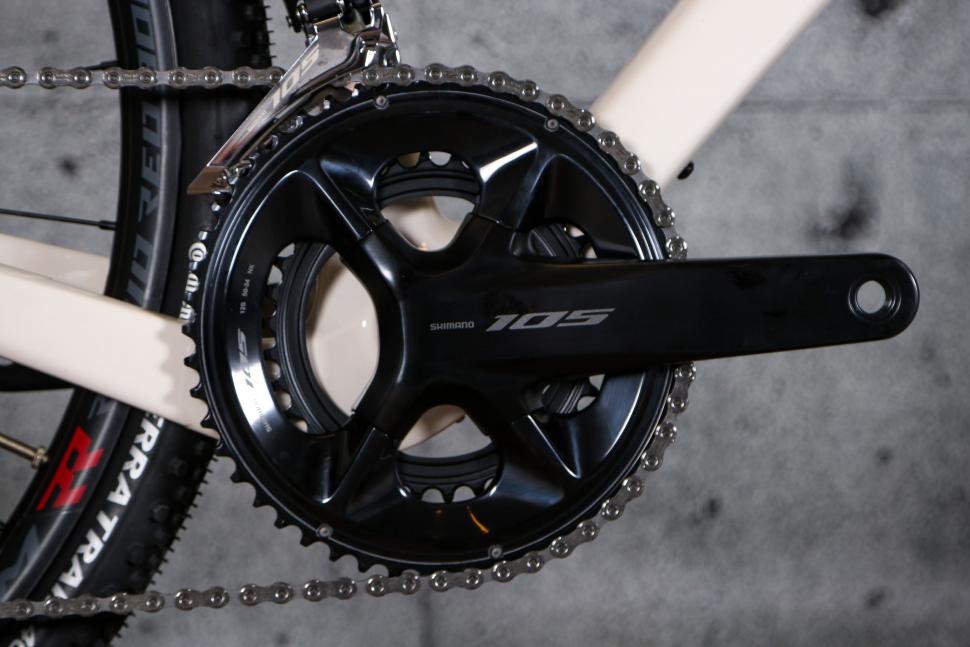 2022 Orro Terra C Shimano 105 Di2 - crank.jpg
2022 Orro Terra C Shimano 105 Di2 - crank.jpg£1,730.00
VERDICT:
Excellent performance, but not the most competitive price-wise
Excellent shift quality and speed
Powerful braking
Virtually identical performance to Ultegra Di2, which is virtually identical to Dura-Ace
Doesn't compete with SRAM Rival AXS eTap on cost
Limited cassette options
No power meter cranksets in the range
Weight:
2,995g
Contact:
At road.cc every product is thoroughly tested for as long as it takes to get a proper insight into how well it works. Our reviewers are experienced cyclists that we trust to be objective. While we strive to ensure that opinions expressed are backed up by facts, reviews are by their nature an informed opinion, not a definitive verdict. We don't intentionally try to break anything (except locks) but we do try to look for weak points in any design. The overall score is not just an average of the other scores: it reflects both a product's function and value – with value determined by how a product compares with items of similar spec, quality, and price.
What the road.cc scores meanGood scores are more common than bad, because fortunately good products are more common than bad.
- Exceptional
- Excellent
- Very Good
- Good
- Quite good
- Average
- Not so good
- Poor
- Bad
- Appalling
Shimano's 105 R7100 Di2 brings semi-wireless electronic shifting to its mid-level groupset, and an extra sprocket to boot, bringing it into line with range toppers Dura-Ace and Ultegra. Some will mourn the lack of a rim brake option, but if you are happy to embrace some of the best performing hydraulic braking power and electronic shifting on the market, this is probably the most cost-effective of all the higher end Shimano road bike groupsets. It's pushed hard on price by its main 'Rival', though, the aptly-named SRAM Rival eTap AXS groupset which is a fair bit cheaper.
So, it's happened – 105 has gone fully electronic and 12 speed; there is no mention of a mechanical shifting option, and the rim brakes have been chucked in the bin.
In some ways I wish that wasn't the case – the option of a 12-speed mechanical groupset for those who want Shimano but don't want electronic is a gap that could do with filling, and I'm still a big fan of quality rim brakes.
I can understand why Shimano has gone down this route, though – sourcing a new frame a few months ago to be built up with a rim brake groupset highlighted how much the market is shrinking as manufacturers continue the shift towards disc brakes.
Enough about what we haven't got, though, let's talk about all the goodies that we do!
In use
I'll go through each of the components and options piece by piece in a bit, but first I'll give you the lowdown on what 105 R7100 is like to use.
Brilliant, basically. I've spent time on all of Shimano's Di2 groupsets right from the first iteration Dura-Ace up to the present models, and while early releases saw big jumps in performance and usability, the recent couple of updates of Ultegra and Dura-Ace have been more about refining the quality from the previous model, and that's the point where 105 joins the throng.
Shimano has taken the technology, ergonomics and quality of Dura-Ace R9200 and Ultegra R8170 to deliver what is an electronic groupset for those on a tighter budget.
While shifting quality and braking is important, comfort and ease of interaction with the STI units is probably the most crucial. After all, you aren't changing gear all of the time, but you will be riding on the hoods for many, many miles.
The 105 shifter units are identical in shape to the Ultegra and Dura-Ace offerings, with large buttons that fall naturally to the fingers even if you are switching between Shimano's mechanical and Di2 groupsets.
With the brake reservoir, but without any mechanical components for the gear changes, Shimano has managed to create an STI unit that mimics its mechanical rim brake offerings for size, meaning less bulk than SRAM's units by a small amount.
I find the design very comfortable, with a rubber hood cover that is soft to the touch and grippy to stop your hands slipping when wet.
The curve of the brake lever allows your fingers to settle naturally in position, and thanks to the power of the hydraulic system, you can brake heavily using just two fingers. Unless you were using it all of the time, the early Di2 units took a bit of thinking about where your fingers needed to be to shift, especially when wearing gloves. These new units don't have that, everything just feels naturally positioned and I never fluffed a shift.
When it comes to the shifting, the click of the buttons is light – lighter than that found on SRAM's AXS and Campagnolo's EPS models – but it isn't so light that you lose the feel of the shift. There is a positive click there and that is replicated by the front and rear mech; Di2 still keeps you connected to the system like a mechanical groupset, but with a much lighter and quicker action.
To test shifting under load, I'd hit my local 20 per cent climb in the big ring before dropping into the small ring when my cadence had dropped to around the 30rpm mark, and while anyone with even an ounce of mechanical sympathy will wince at the thought of shifting a chain across chainrings at this point, 105 doesn't share your concerns.
The shift was dealt with without issue, and it's the same at the rear. A big help is that you can just hold a button on the shifter and the mech will make continuous shifts in either direction.
Overall, in terms of performance of both the shifting and braking, the R7100 Di2 groupset can barely be faulted, and the STI units are some of the most comfortable on the market.
Shifting/Brake Lever – ST-R7170
£349.99 (including shifters and brake calipers/hose kit)
Weight: 423g (pair)
Just like Ultegra and Dura-Ace, the 105 shifters are wireless, something that's only been available on the latest iterations to bring them in line with SRAM.
SRAM, though, offers a fully wireless system where its derailleurs use their own batteries, and everything is controlled via Wi-Fi.
The R7170 shifters use two CR1632 coin batteries for their power supply which Shimano says will last three-and-a-half to four years. The mechs are then connected to the main battery via wires.
Straight out of the box, the shifter buttons have the same functions as all Di2 units, but they can be customised using the E-TUBE app; this will also sort out firmware updates.
One thing Shimano hasn't offered are ports for 'sprinter shifters' which you can attach to the handlebar around the drops for when you can't reach the levers.
Chainset – FC-R7100
£169.99 FC-R7100/£119.99 FC-RS520
Weight: 766g (FC-R7100)
(Non-series FC-RS520 12-speed is also compatible)
For this 105 series the pro-level 53/39T chainset isn't offered here, with the two options being 50/34T and 52/36T.
For the type of riders likely to be using 105 I'd say that's a fair shout, with both options offering a great spread of gears high and low end for those who are racing or just riding.
I must admit I do like SRAM's idea of smaller chainrings paired to a wide-ranging cassette as found on its latest Rival AXS eTap groupset. It feels efficient to me, barely having to drop down from the large chainring until hitting the steepest of climbs. There are trade-offs with the SRAM cassette sizes, though, but more about that in a minute.
Design-wise the R7100 unit has a new look over the previous R7000 crankset, although it still maintains the four-arm attachment to the chainrings with a 110mm bolt circle diameter (BCD).
Using Shimano's Hollowtech II design, the aluminium alloy cranks are formed hollow to keep weight down, and they certainly aren't lacking in stiffness.
Unlike SRAM, though, Shimano doesn't offer any power meter options.
Crank lengths are the typical 160, 165, 170, 172.5 and 175mm, and Shimano has retained the 24mm diameter axle, resisting the urge to increase to 30mm like many brands.
Shifting between the chainrings is great even under load thanks to the design of the various ramps and tooth profiles.
Front Derailleur – FD-R7150
£149.99
Weight: 142g
While many of the components of this new 105 groupset look much the same as the latest Ultegra, the front mech looks more similar to previous Di2 versions, being bulkier than the new units.
I've got test bikes that are running the latest Ultegra Di2, so I've been able to run the groupsets side by side.
For me, the front mech is the only real noticeable difference in terms of performance between the two. Ultegra's shifting is just a tiny bit faster; no cleaner or crisper, just quicker.
That isn't to say the 105 unit is sluggish – far from it! – it's just that I'm highlighting where savings have been made.
Shifting from the front mech is great, with plenty of power to move the chain even under heavy load, and the automatic trimming mode works as well as always, tweaking the chainline as you move up and down the cassette.
The maximum chainring size it can cope with is 52T, and a range of 16 teeth (the difference between big and small chainring).
Rear Derailleur – RD-R7150
£274.99
Weight: 302g
The 105 rear mech looks very similar to the Ultegra version but has a longer cage to cope with a 36T sprocket.
According to Shimano this is the brains and hub of the Di2 unit, incorporating the charging port, adjustment switches and everything else. While it uses Shimano's Shadow technology, which sits the mech underneath the cassette in a bid to keep it out of the way, should you crash it's still going to be one of the most vulnerable components, and pricey to replace.
It's good at doing its job, though: gear changes are quick and precise, plus setting it up is simple too.
Cassette
£69.99 (11-34T), £89.99 (11-36T)
Weight: 361g (11-34T)
Options: CS-R7100-12 – 11-34T; CS-HG710-12 – 11-36T
Cassette-wise, as you can see there are just two options of 11-34 and 11-36.
Personally, I'd like to see more – 105 has always been seen as a groupset that covers all bases, capable of everything from touring to racing, so it would be good to see some closer ratio options such as an 11-25 or 11-28.
SRAM's 12-speed cassettes offer a 10T sprocket which works with its smaller chainrings to still give a large gear ratio. To create the wide-ranging ratios, though, they do tend to have large jumps at the upper end of the cassette, something that Shimano doesn't suffer from.
The 11-34T goes: 11, 12, 13, 14, 15, 17, 19, 21, 24, 27, 30, 34.
Shimano has stuck with the 11-tooth smallest sprocket so as to make the groupset compatible with 11-speed freehub-equipped wheels.
Brakes – Calipers (BR-R7170), Rotors (SM-RT64)
£26.99 per rotor
Weight: Rotors – 286g per pair (callipers included with shifters)
To look at, the 105 calliper hasn't really changed much over previous versions, but Shimano has now added 10 per cent more pad clearance to minimise brake rub and alignment issues.
To be honest, I never really had an issue with earlier models, but this does at least give more tolerance for setup.
The SM-RT64 rotors are available in 140, 160, 180, 203 and 220mm diameters, although only the smaller sizes are really needed for road use.
They don't quite have the cool looks of the RT-CL800 models used in the Ultegra groupset, but performance is still great – powerful and with loads of feel at the brake lever.
Chain – CN-M7100
£34.99
Weight: 252g
The chain selected for the 105 groupset is from the mountain bike SLX line-up. It comes with a quick-link assembly and SIL-TEC treatment which Shimano claims gives extended off-road durability. Ideal if you are going to be using 105 as an all-year-round groupset.
Value
The majority of riders using 105 Di2 will have had it come as part of bike package, but if you are going to buy it as a groupset for your own build, with all of the bits and pieces that you are going to need like wires, batteries and so on, it's going to set you back £1,730.
That's a saving of more than £669 over Ultegra (more, in fact, as you'll need to add rotors because they aren't included in the Ultegra price).
The SRAM Rival eTap AXS groupset that we tested comes in at just £1,470 with power meter, £1,268 without, which is a massive saving. Even SRAM Force, the next level up, comes in cheaper at £1,540.
For once, Shimano 105 isn't really looking like the affordable groupset it once was.
Conclusion
In terms of its performance and rider integration, I can't fault 105 Di2. It's a great groupset and looks awesome too, with its gloss black finish. I can't help feeling it's a shame that the upgrades haven't been brought across with a mechanical groupset, but hey, that's the future I suppose.
It isn't as good value as its main rival, though. Prices for fully built bikes with Rival eTap and 105 Di2 aren't that different, but buying a groupset for your own build, at full RRP, SRAM offers better value for money over Shimano.
Verdict
Excellent performance, but not the most competitive price-wise
road.cc test report
Make and model: Shimano 105 R7100 Di2 Groupset
Size tested: Chainset 50/34, cassette 11-34
Tell us what the product is for and who it's aimed at. What do the manufacturers say about it? How does that compare to your own feelings about it?
Shimano says: "The new SHIMANO 105 brings Di2 shifting to a new set of riders. For those who have only experienced mechanical shifting and ergonomics, SHIMANO 105 Di2 represents a transformation of the road cycling experience."
In terms of performance it's an excellent groupset offering similar performance to Ultegra without the price tag.
Tell us some more about the technical aspects of the product?
Shifting/Brake Lever – ST-R7170
Chainset – FC-R7100 50/34T or 52/36T
Front Derailleur – FD-R7150
Rear Derailleur – RD-R7150
Cassette: CS-R7100-12 – 11-34T, CS-HG710-12 – 11-36T
Brakes: Calipers (BR-R7170), Rotors (SM-RT64)
Chain: CN-M7100
Rate the product for quality of construction:
8/10
Rate the product for performance:
9/10
Rate the product for durability:
8/10
Rate the product for weight (if applicable)
8/10
Rate the product for comfort (if applicable)
9/10
Rate the product for value:
4/10
Tell us how the product performed overall when used for its designed purpose
In use it is an excellent groupset with sharp gearshifts and powerful braking.
Tell us what you particularly liked about the product
The hoods are very comfortable.
Tell us what you particularly disliked about the product
I'd like to see more cassette size options.
How does the price compare to that of similar products in the market, including ones recently tested on road.cc?
It's pricey compared with the equivalent SRAM Rival offering.
Did you enjoy using the product? Yes
Would you consider buying the product? Not as a standalone groupset, it's better value on a complete bike.
Would you recommend the product to a friend? Yes
Use this box to explain your overall score
This 105 groupset brings near-Ultegra performance for much less money, but it is up against some tough opposition in price against SRAM Rival.
About the tester
Age: 42
I usually ride: This month's test bike My best bike is: B'Twin Ultra CF draped in the latest bling test components
I've been riding for: Over 20 years I ride: Every day I would class myself as: Expert
I regularly do the following types of riding: time trialling, commuting, club rides, sportives, fixed/singlespeed,
Since writing his first bike review for road.cc back in early 2009 senior product reviewer Stu has tested more than a thousand pieces of kit, and hundreds of bikes.
With an HND in mechanical engineering and previous roles as a CNC programmer/machinist, draughtsman and development engineer (working in new product design) Stu understands what it takes to bring a product to market. A mix of that knowledge combined with his love of road and gravel cycling puts him in the ideal position to put the latest kit through its paces.
He first made the switch to road cycling in 1999, primarily for fitness, but it didn’t take long for his competitive side to take over which led to around ten years as a time triallist and some pretty decent results. These days though riding is more about escapism, keeping the weight off and just enjoying the fact that he gets to ride the latest technology as part of his day job.
Latest Comments
- rogerwb 4 hours 53 sec ago
Generalisations are valid in this case; there are enough boomers with negative attitudes to young people to be able to block good things like this....
- mattw 8 hours 59 min ago
This risks turning me into a hanger and flogger....
- wtjs 12 hours 59 min ago
In SE London, psychopath riders are the majority of people on bicycles Oh dear! another festive stealth anti-cyclist ☃️
- wtjs 13 hours 4 min ago
Well, you know the BMW drivers' saying: knock that house (hospital, social housing, care home, hospital...) down, could save 30 seconds on the trip!
- Spangly Shiny 14 hours 39 min ago
I had the pleasure of owning two of the featured builders here, in my history. When I joined the Army in 1971, I took with me my curly Hetchins:...
- Username 15 hours 44 min ago
Could Siobhán paint it red and noone would notice it?
- Spangly Shiny 1 day 6 hours ago
To paraphrase Field of Dreams, "Build it right and they will come: and use it!"
- Rendel Harris 1 day 8 hours ago
And a Happy Christmas to you, road.cc staff!
- Rendel Harris 1 day 9 hours ago
The odds of not being able to find a single pedestrian - just one, note, "any pedestrian" - in an area containing more than about ten of them who...

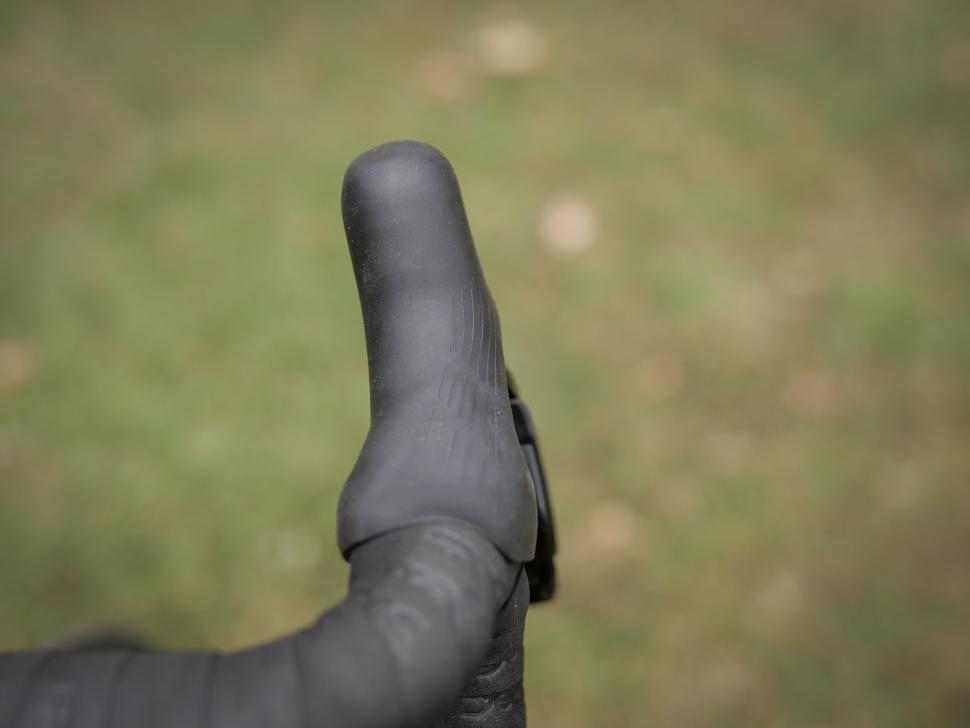

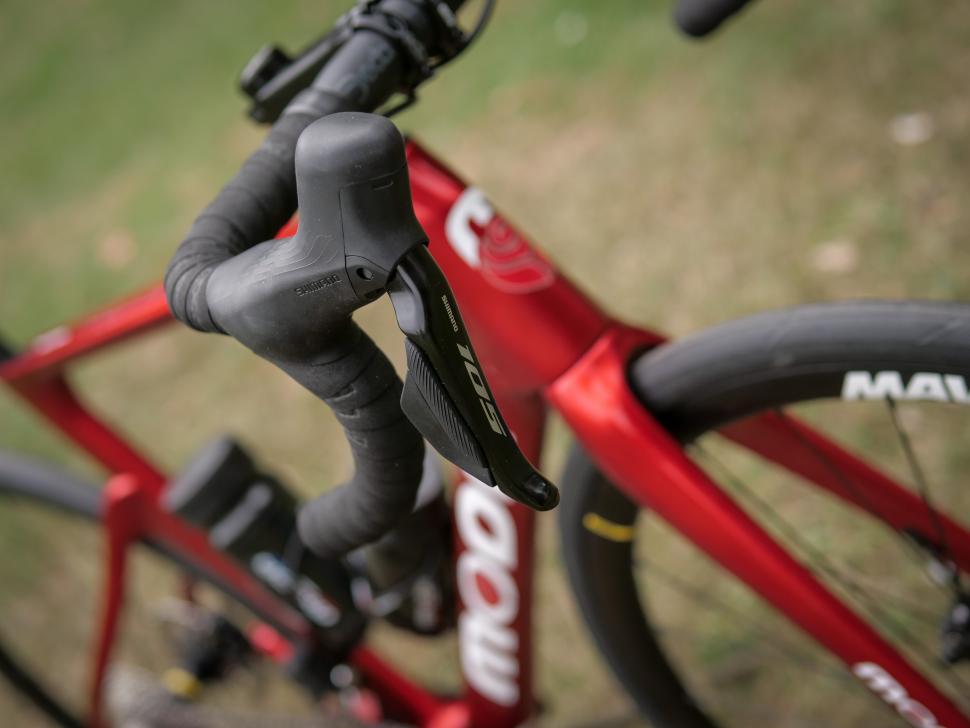
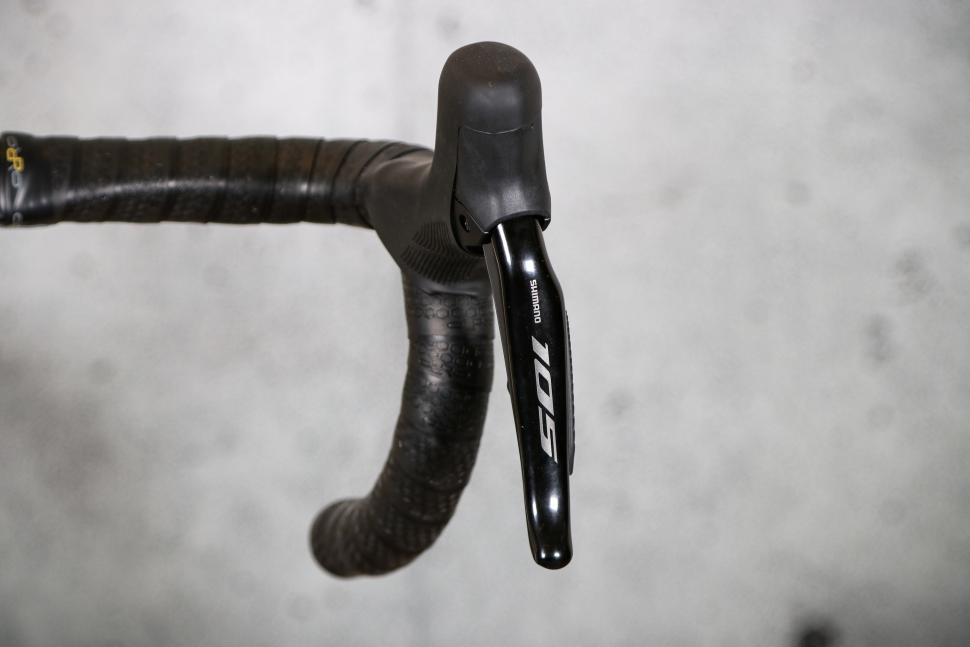
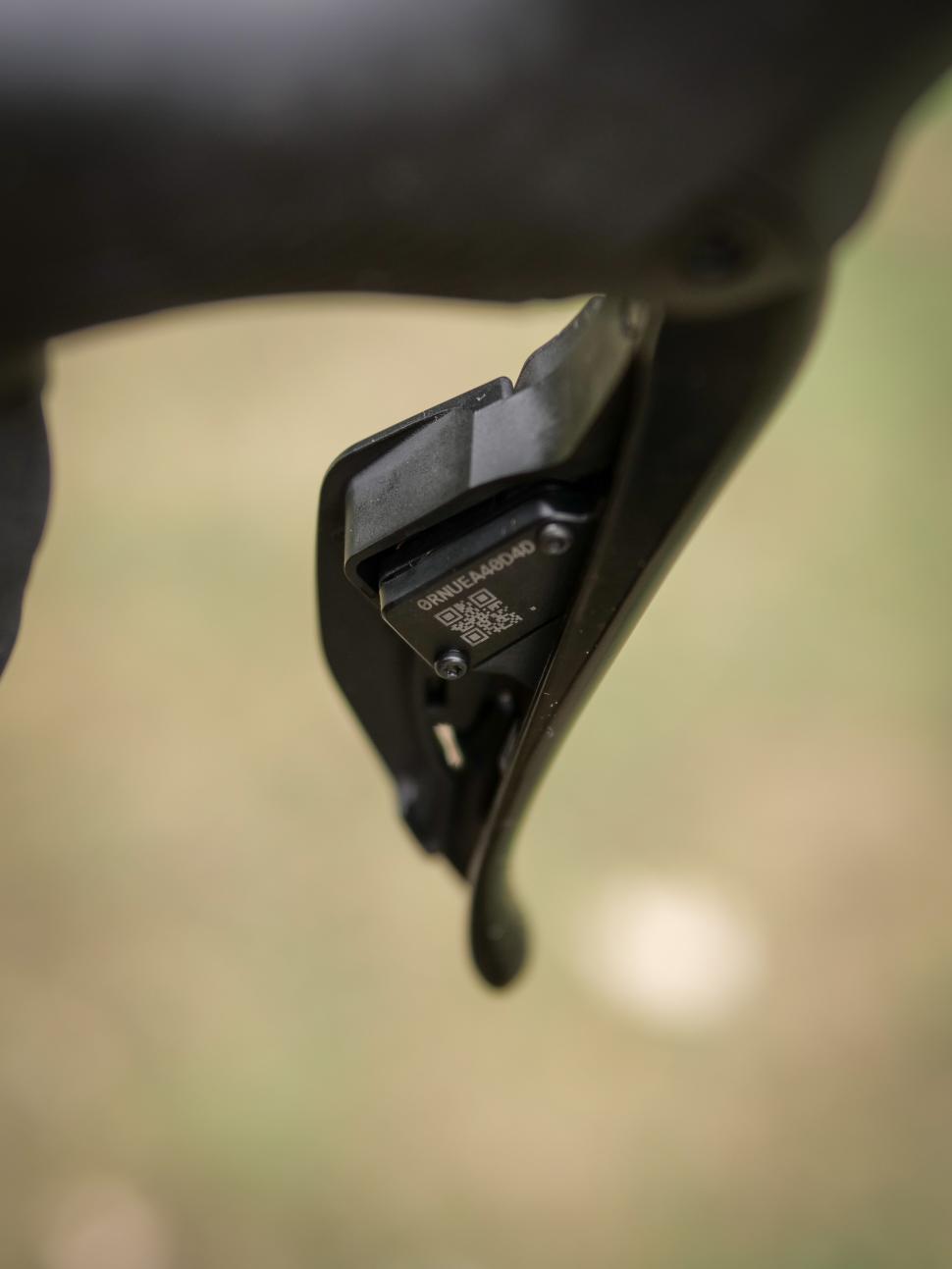

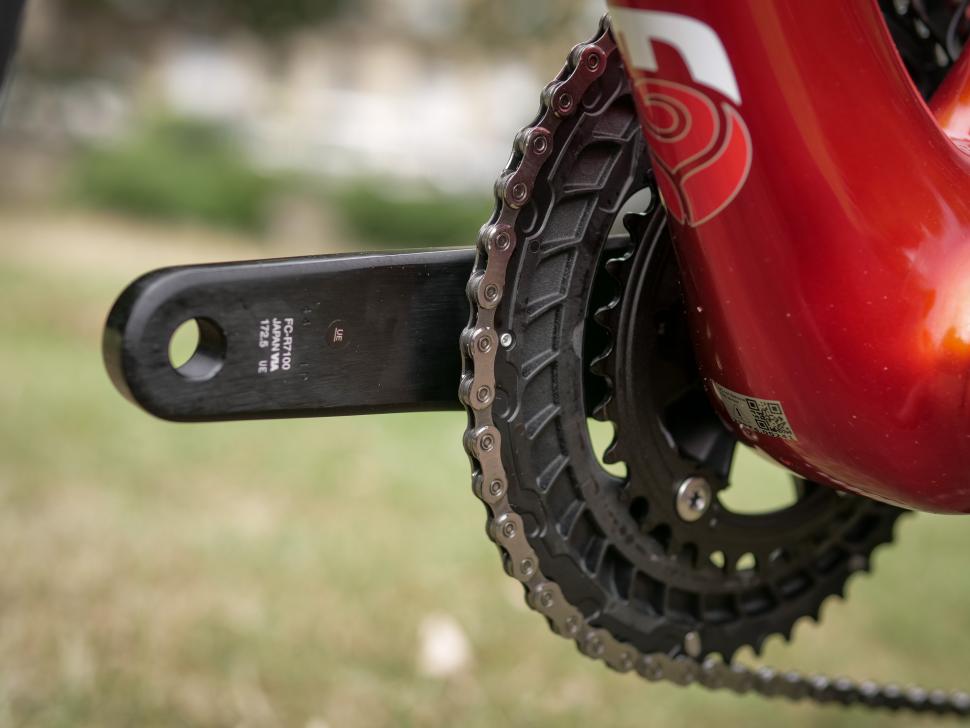
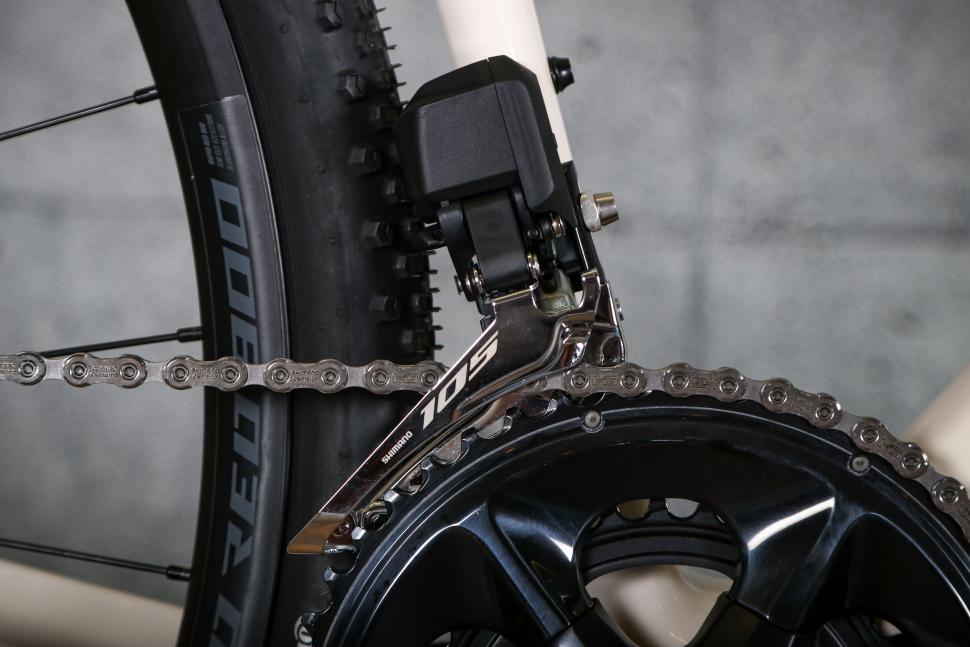
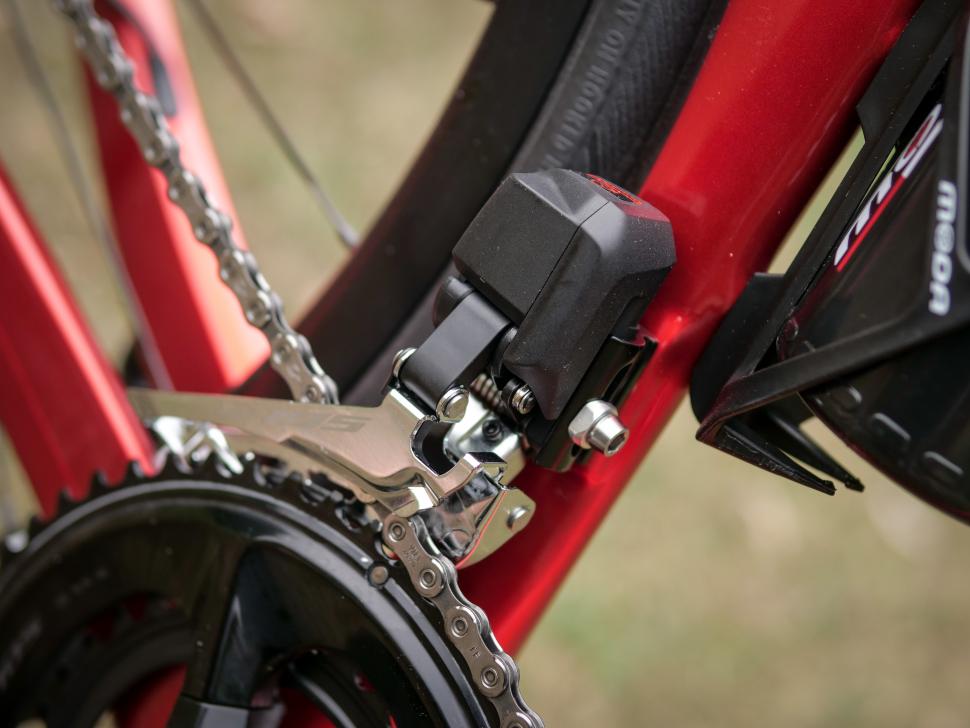
























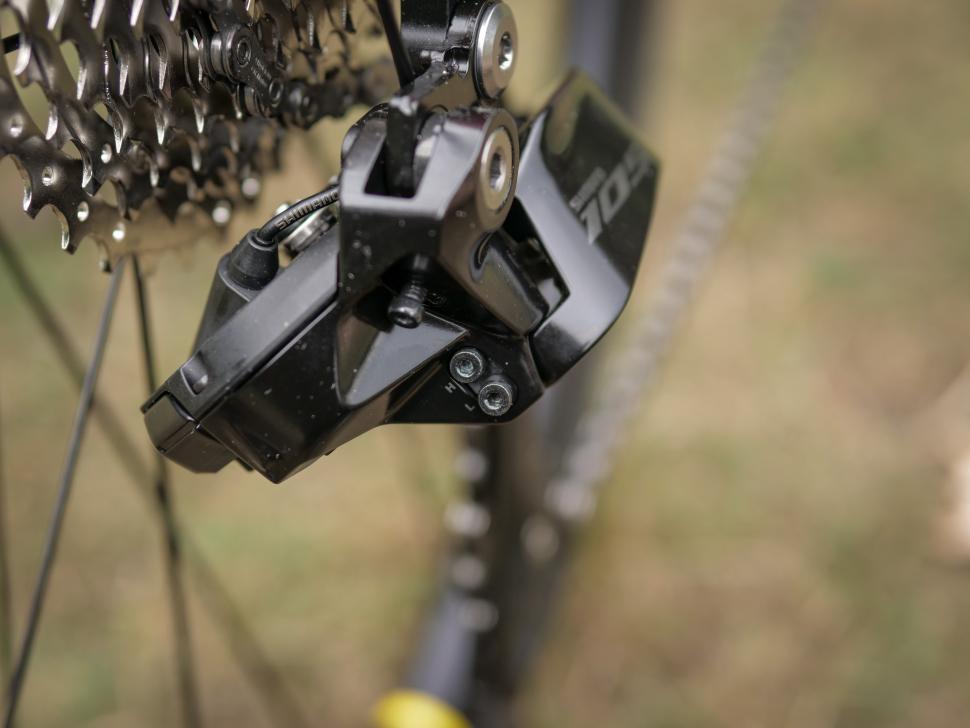
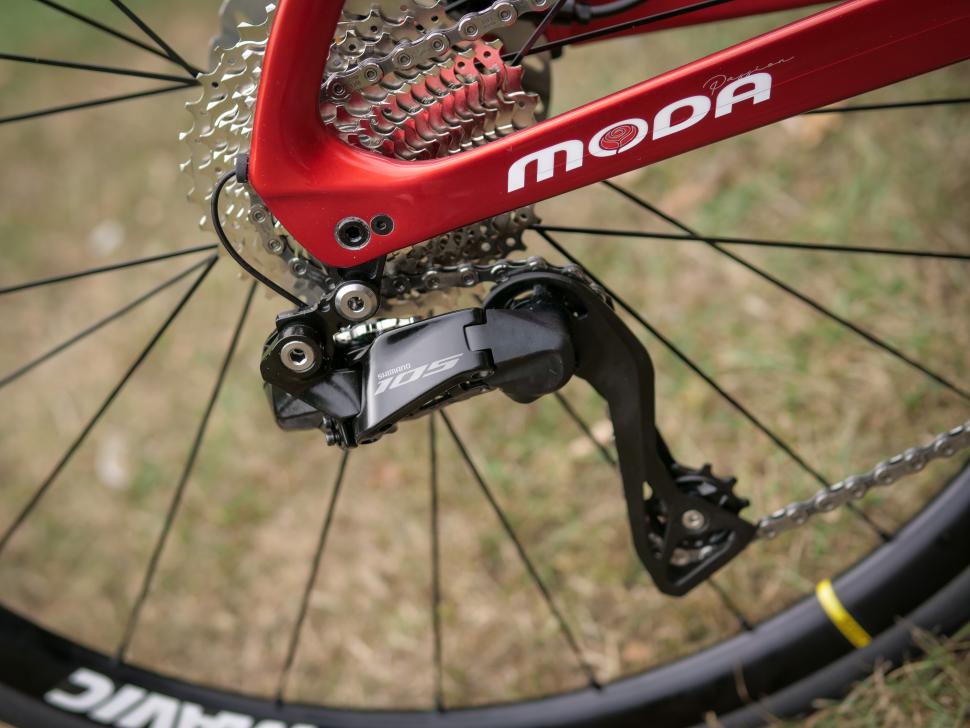

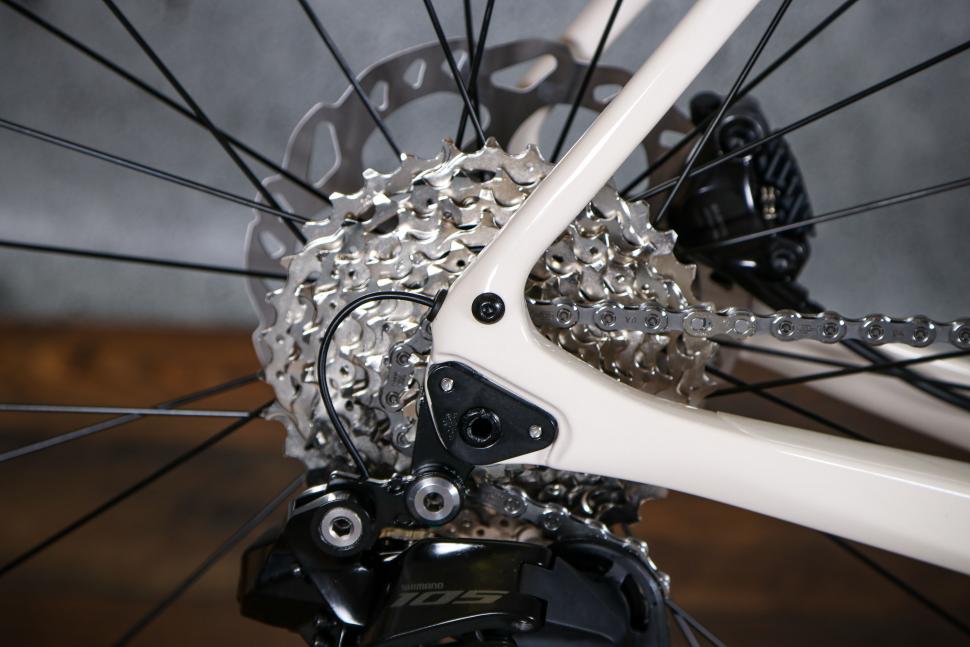
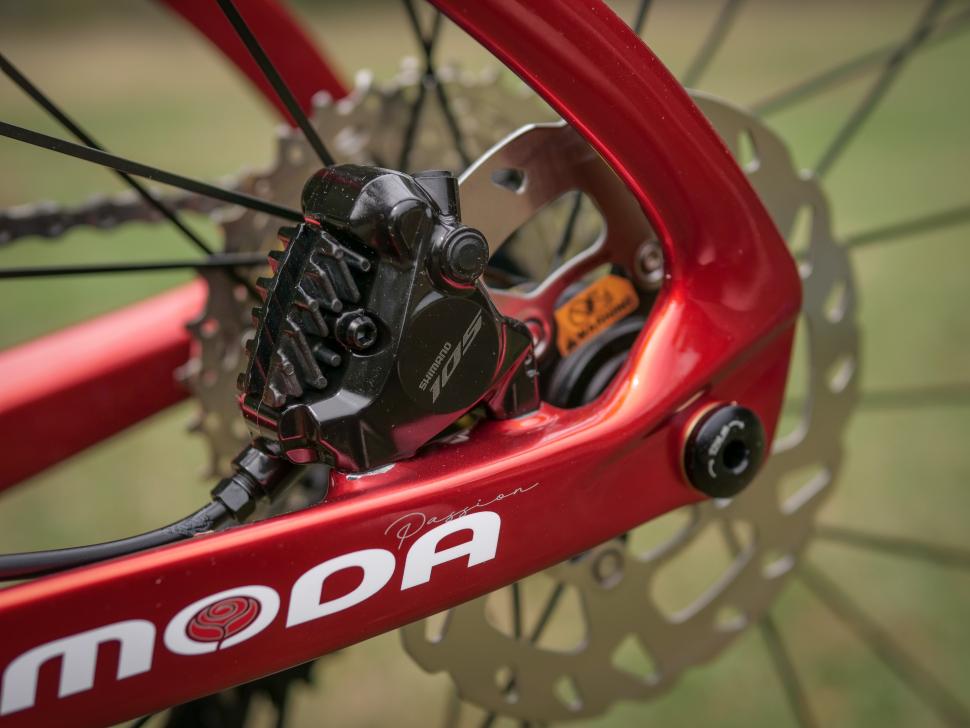


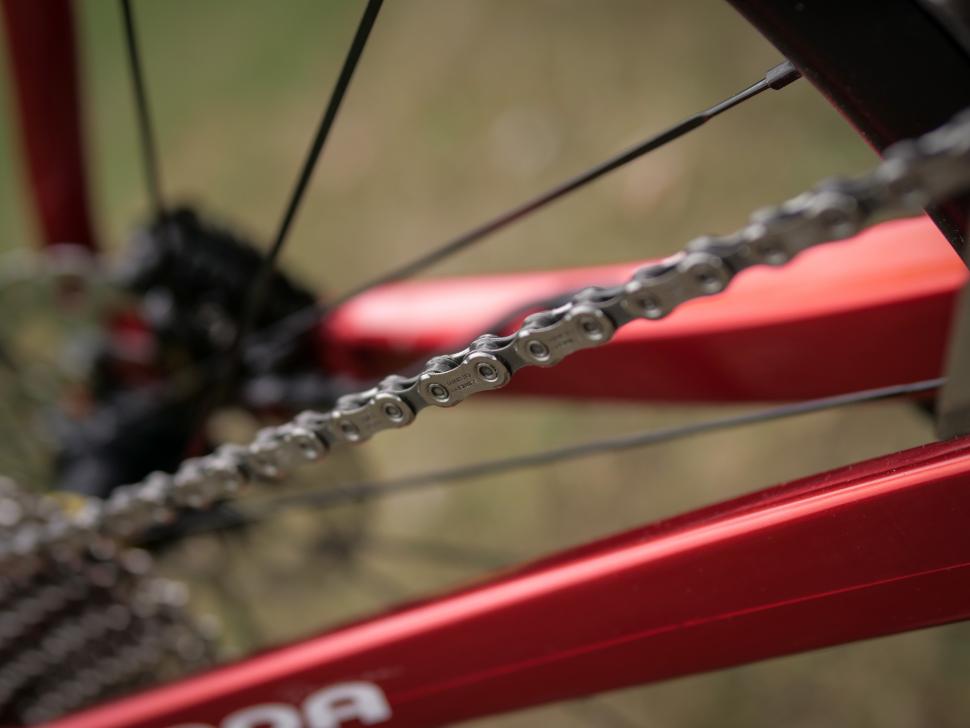
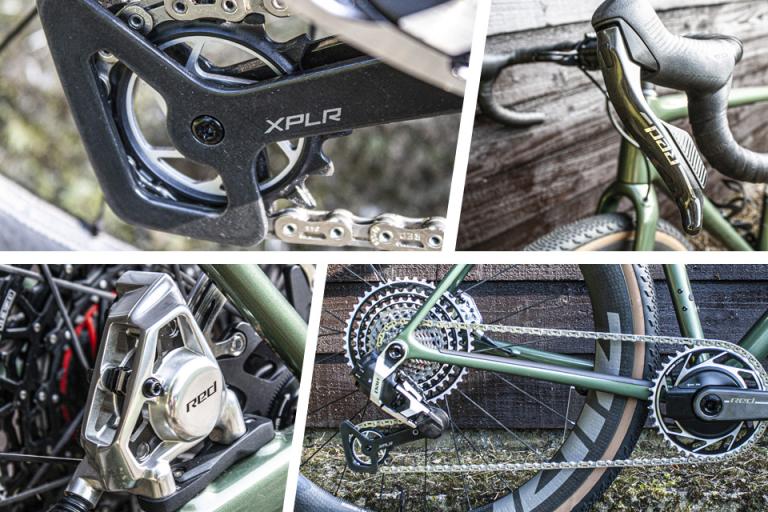

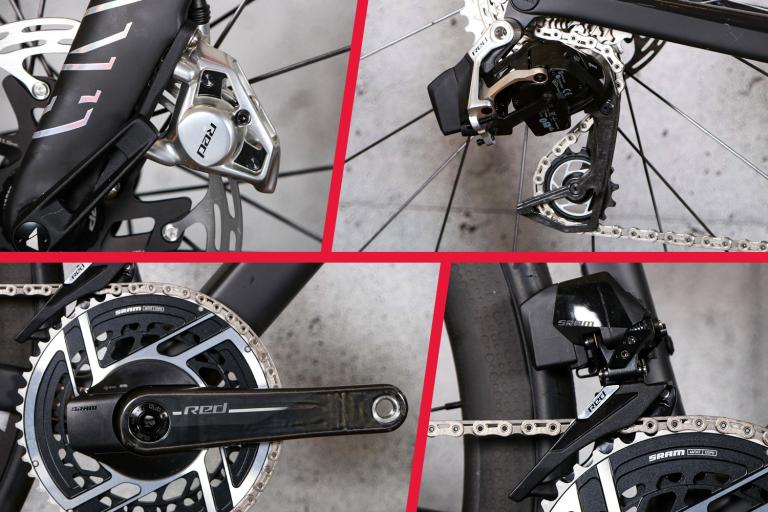
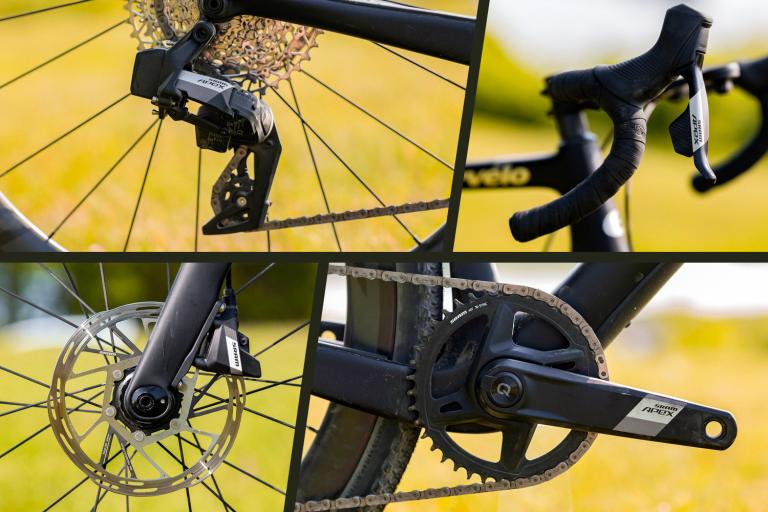
Add new comment
28 comments
Somehow they have made Di2 even less attractive. Still with the small, fiddly lever blades, the wiring and the expense. Still with the larger number of potential failure points and no obvious benefit - I've borrowed a couple bikes with it and was expecting perfect, lightning-fast shifting. But no, it was Shimano 11 shifting ... but you push a button.
I still cannot see any benefit to me as a rider over my Shimano 11 mechanical (other than the extra couple of teeth in gear range) setups or my two Campag 11 mechanical / rim setups, all of which just work. One of my Campag setups cost me c. £600 brand new, has given me zero issues and (if it matters, which it doesn't if you're not racing) weighs about the same as Ultegra 8000 mechanical.
If I was looking for new 12sp, I wouldn't even go to AXS, I'd be going straight to the appropriate Chorus mechanical, which is £600-£800 cheaper depending on whether you want hydraulic braking. Undocumented feature - you can make Di2 "bweeee" noises yourself when using the left lever!
Does this at least mean we will get Tiagra 11 for £399 without a 920g crank and the naff looks?
The reviewer draws an odd conclusion on cassette sizes. First Shimano are criticised (rightly) for the lack of choice, but the criticism of SRAM for bigger jumps between gears is misplaced, as this only applies to the extreme wide range 10-36 cassette. In fact for those wanting smaller jumps between gears, SRAM win hands down with their 10-30 which has smaller jumps than either of the Shimano offerings. The point here is that SRAM Rival offers a real choice of wide range or close ratio cassettes , whereas Shimano's two choices are remarkably close together, making it really, not much of a choice at all.
The component world has finally joined the 'throw away culture' band wagon. For example should your front mech' fail you'll have no option but to buy a new unit as the item hasn't been manufactured with 'repair' in mind. This is a retrograde step for both the consumer the planet.
Exactly. The planet is on the brink of ecological catastrophe, we are about to enter a recession with cost of living crisis, fuel prices are out of control and the manufacturers think this is the direction cycling should take.
I'm tempted to start working on a business startup. Performance cycling components in industry standard sizes, consumer repairable, low cost, no electricity, lighter and basically faster, far cheaper and eco-friendly alternative to the crap being pushed on the public.
Any move that makes cycling appear or be less accessible is exactly what the planet doesn't need. Madness.
Does anyone know when the patents expire on the old top of the line 9 speed Campy and Shimano groupsets? Asking for a friend!
ETA: Just checked. Campy and Shimano 9 speed came onto the market in 1997 and 1999 respectively. That means the patents have expired (20 years), I think. With updated materials, you could produce groupsets lighter and at least as durable, using designs based on these. Anyone fancy investing in the future of cycling, drop me a line.
Have front mechs ever been repairable?
None of the Shimano ones in have ever used in the past 40 years have been.
Once the pivots go that's about it.
Generally same with the rear, jockeys can be replaced. I once replaced the bolt that attaches it to the frame (utter nightmare) but that was weight saving, and the main spring could be changed to mitigate the effects of filth.
Paul's used to make a rear that you could take apart. Beautiful but very, very expensive.
More to go wrong with the electric thing mind.
I speak as someone who has kept his 7/8 speed XT system going for over 20 years by getting stuff second hand off eBay, making sure stuff was not too worn by checking out how it looked, and then using it untill it died. Pivots dieing on the brake levers were the most frustrating. Started lubing them with finish line's SPD PTFE lube a while back.
Gone rohloff now.
And hope disks, fully serviceable them, for far longer than they really should be.
If I read any more articles trying to pretend that groupset and frame manufacturers are led by consumer demand, I think I might lose the will to live.
Yes Shimano, because cyclists want less aero, heavier, more expensive groupsets that cost three times what the old ones did. I become more wedded to mechanical rim brake as every day goes by. For road cycling in particular, it makes so much more sense than the nonsense being pushed on consumers.
If you want this nonsense and have more money than sense, then by all means buy it. But if you can pay less for a faster, lighter, at least as aero bike then why wouldn't you? So these new groupsets are just a huge way of making performance cycling at least seem less accessible. Who is going to be honest and tell the public, that are new to cycling, that my old best bike with a mechanical rim brake 10 speed groupset is actually lighter, more aero, easier to maintain and cost significantly less. Yes, it's faster, more aero and cheaper. Pick all three. What is a smart person likely to do?
Batteries and charging? Firmware? Ridiculously thin chains? Cassettes that cost double if you want an 11-30 for racing? Hydraulics for multi day touring or travelling abroad?
I would love to start a pro cycling team that ran on 10 or 11 speed mechanical rim break groupsets and raced on quality aluminium framesets with standard handlebars and seatposts... The manufacturers would shit themselves.
Rim break. Snigger...
You miss the point about Shimano and the like. They exist to make the most money possible. They're clearly sure selling discs and electronic gears is the way to do that.
I'm in both camps by the way - I have rim and disc brake bikes.
SRAM AXS is not Wi-Fi, it's AIREA, their own 2.4GHz protocol. Probably very similar to zigbee I think but with some added encryption.
Sorry do you get a bike attached to this for £1,730? Yes we are laughing!
e.g this is with 11 speed disc 105 for £1,699 - https://www.canyon.com/en-gb/road-bikes/endurance-bikes/endurace/al/endu...
Yeah! I ride on my race bike with di2. The complete carbon Storck frame set and a complete ultegra di2 group costed 1200£! However, mayb (hopefully) Shimano priced the 105 at this level to be able to offer heavy discounts and cheap(er) OEM versions.
So, it does all the same things as its predecessor 105 R7000 (it brakes and it changes gears) but this new 105 R7100 weighs 500g more (yes, 1/2-a-kilo !!!) and costs ~3X (!!!).
Shimano have simply been piling-on-the-pounds (lbs & £), so a lose-lose for the shimano buyer. While the review does highlight 105 is no longer priced for the masses, it says nothing about the 1/2-kilo penalty being pushed onto the lucky end-users. A 3Kg groupset weight is way too much for a £2K outlay.
The 2020 road.cc 105 R7000 review: https://road.cc/content/review/248560-shimano-105-r7000-groupset. Have pedals (shown here) also been silently dropped from the group?
I think it's more like the existing 105 pedals have carried over rather than been dropped - we were just told that no new pedals are planned and the R7000 ones are still the most current, no real explanation though.
At least the pedals won't need batteries or firmware updates (or cost 3 times the price of the current model).
Having 12 cogs means that there are no big jumps between gears but I'm surprised there is no 11-30. But it's OK, as Ultegra 11-30 costs a piddling £120. That's double the price of HG700 for one extra cog.
Between that and £350 for the shifters no wonder people are complaining about the cost of living. I don't know about Food Banks or windfall taxes, we are going to need Groupset Subsidies for the needy!
Lightweight isn't cool any more, or at least, can't be packaged up into expensive new systems that lock you in to new frames or groupsets.
It's a strange inversion though as if you can find the parts, lightweight builds can come in substantially cheaper. I've found a lovely carbon fibre rim brake frameset which with a mechanical Ultegra groupset will cost £2200 and will be significantly lighter than any equivalent Di2/disc build.
Tom Ritchey needs to revise his motto: Di2, light, cheap; pick two 😎
Yes, the new 105 is clearly not 3x better at braking or changing gears than the old one, but continuing 105 with a low weight at a low price would just embarass ultegra and DA, so 105 had to be brought into line. Users, apparently, must pay the price.
Once lightweight is all but forgotten shimano can then sell you 105, ultegra and DA e-motors to help drag their overweight-bikes along. You wanted a bike, you got an e-moped.
We discussed this on the pre-review articles.
Like car inflation, Shimano seem to be encouraging feature inflation, but the reality is that the lower spec groupers have also seen significant improvements, so Tiagra and Sora are now high quality rather than compromised tat and should be considered as the alternative rather than being wedded to a name..
Be interesting to see where the real price point for 105 ends up on new bikes.
Yep Tiagra and Sora are fine, but there's no longer a cheap and lightweight option like 105 was.
I believe the original quote was Keith Bontrager. Apologies for pedantry.
D'oh!
Thanks, I knew I should have checked 😉
Of course a mechanical groupset with rim brakes will be lighter than this set but for those that want the latest tech that makes shifting and braking a breeze, there is a weight and price penalty.
Shifting and braking was never really an ordeal before Di2, you know...
Exactly. I think it's pretty lame that we are now apparently all in such a thrall to slowing down easier and not having to learn how to use our gears that we're willing to spend hundreds of pounds more just to make our bikes heavier, easier to slow down and slightly whirrier 😂
If you repeat something often enough it becomes a fact.
Having said that, not everyone has enjoyed superb rim brake performance or faultless mechanical shifting. I've had more than my share of "Am I going to stop?" moments in the wet. There will be no cyclo-cross or MTB racers wanting to return to canti brakes. The same goes for plain gauge steel frames, downtube friction shifting, toe clips & straps or - perhaps the worst one - 1980s bike lights. <shudder>
If you look around the changes in technology are being used absolutely everywhere, whether electronics and computing, carbon fibre, moulded composites and now 3D printing.
How many people want to ditch their digital camera/smartphone and go back to 35mm film cameras and get the dev & print done via the local chemist or using those Truprint mailers? But I do realise that change (or 'progress') isn't always a good thing in the end.
Completely agree. How the hell did any of us ride for 25-35 years plus, without Di2 and Disc brakes.?
My Dura Ace (New old stock) 9000/9100 mix, cost less weighs less and changes gears beautifully. Oh yes the rim brakes work beautifully too.
If I was in the market for a new bike/group, I would be looking at Campag Chorus mechanical.
Because aero trumps light weight most times?
Maybe